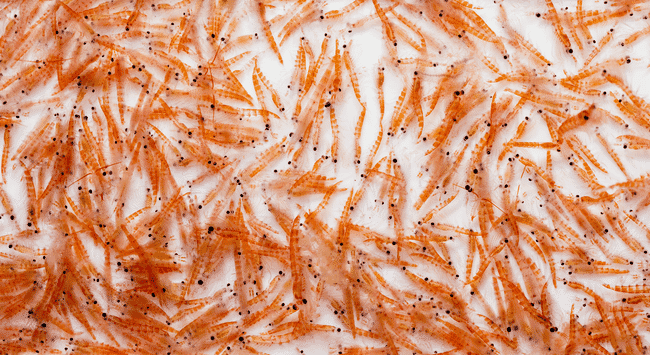The projects – one of which focuses on the role of fish in the Scotia Sea food web and the other on the estimation of krill biomass using new acoustic modelling – have been awarded research grants by the Antarctic Wildlife Research Fund (AWR).

The AWR is part-funded by Aker BioMarine – the largest catcher of krill in the Southern Ocean - which turns the bulk of its landings into omega-3-rich oil for the aquaculture feed industry.
The Norwegian firm committed $1 million to AWR over the next five years, to secure their work promoting and facilitating research on the Antarctic ecosystem.
“We are of the understanding that the best way to ensure the future of the fishery is to take care of the ecosystem in which we fish. Ensuring that there is enough scientific evidence to support the sustainable harvest of krill is fundamental to our business and so is AWR,” said Matts Johansen, CEO of Aker BioMarine.
“The funding is vital to continue with scientific research and to ensure the long-term health of the ecosystem. Only through a better understanding of the role of Antarctic krill in the Southern Ocean can we fully protect the animals that feed on krill and ensure precautionary fishery management,” said Claire Christian, the Chair of AWR.
Project details
1. Accurate krill biomass estimation using spatiotemporal acoustic target strength modelling.
This project aims at improving the accuracy of krill biomass estimates using observations of the material properties of krill coupled with numerical models that describe how individual krill and krill swarms scatter sound.
It will will reduce bias and improve accuracy in krill biomass estimates. Using a combination of field observations and modelling, the project will improve our understanding of the internal and acoustic properties of krill under different spatiotemporal conditions and frame these in terms of implications for krill biomass estimates.
2. The role of fish in the Scotia Sea food web.
The analysis will address important uncertainties, such as the degree of myctophid predation on early life stages of krill. Improved understanding of temporal and spatial variability in krill consumption by fish is key information required for The Commission for the Conservation of Antarctic Marine Living Resources (CCAMLR) and their risk assessment and interpretation of CEMP data.
This analysis will provide a significant step forward in our understanding of the trophic roles of fish in Antarctic ecosystems and the potential for interactions with krill predators and the krill fishery.
Call for proposals
The fifth call for proposals is now open. For the 2019 edition, AWR is looking for research projects that will contribute to a better understanding of krill biology and ecology, and the overlap of flying seabirds with krill fisheries. The closing date for entries is April 19, 2019.

